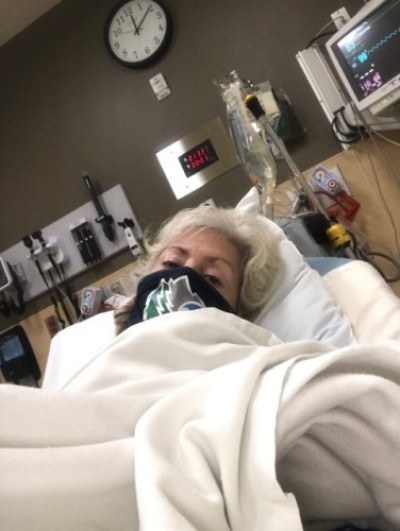COVID-19 in the rural country
Our rural county in Northwest Washington state went from moderate risk for COVID-19 to high risk in a matter of days. This is not good news for any of us living here.

I went to bed Saturday night with a mild fever and abdominal pain. First thought: COVID. I’ve been so incredibly careful. Masked in public, hand sanitizer if I touched anything. So how did it happen? Stomach pain made sleeping hard. A slight cough developed overnight. I planned to get a COVID test in the morning. After a couple medical calls, I was directed to our local emergency room. Due to COVID restrictions, I was screened outside. When the health care worker asked what was wrong, I said mild fever and abdominal pain. Her eyes narrowed over the top of her mask, “You realize those are COVID symptoms?”
This post is not about me. This is about them — the amazing health care workers on the frontlines. I was hustled into a room and within minutes I was being evaluated. Everyone had to don full personal protection gear. N-95 masks beneath the hospital masks, face shields, and paper gowns over their hospital scrubs. They removed the paper gowns into a separate bin as they exited my room. They were taking no chances.
Whatever tests that could be done in that room were done there, with the technicians wearing full body protection. These health care workers have dedicated themselves to help heal. Yet, they’re up against COVID.
My emergency room nurse was overworked and visibly weary at the cavalier attitude she sees about COVID. “I walked my dog last night, and several of my neighbors were barbecuing with friends out back. They were laughing and carrying on like we aren’t in the middle of a pandemic.” She went on to tell me about an elderly COVID patient she treated. Family members had thrown him a birthday party, and two people had asymptotic COVID. “He celebrated his final birthday. I can’t imagine how the family feels now.”
The lab tech that drew vials of my blood said that in 1918 people didn’t take the pandemic seriously either. The ER doctor and I communicated with our eyes and mask-muffled words.
Then my COVID test. It was the quick one....which meant the hard one in the back of the nasal cavity. My CT scan had revealed I was dealing with an angry appendix, but no operation could be performed until the COVID test came back. If I had COVID they would need to create an isolation surgical suite and wear more protection.
Within minutes of my negative COVID test, I was rolled into surgery to remove my appendix — a smallish section at the end of the intestine. Before I conked out, my surgeon said I wouldn’t miss it.
Now, I’m recovering from something totally unexpected. But on behalf of the medical community, I am now pledging to be abundantly serious about COVID — which is here in our rural woodlands nestled next to the sea. Hopefully you will never get COVID. I will be doing whatever I can do to prevent exposure. After being this sick, health has become a treasure. If you can take measures to prevent COVID, please do.
I never knew what our health care workers went through with a suspected COVID case. It’s intense. Their medical training equipped them for pandemics. Now they are living it out. Yet, America has lost healthcare workers to COVID. Having seen these medical teams at work, I can imagine how this must affect their close knit community.
The biggest thank you I can give to my hospital care team is to do my part to stop the spread. In our rural health district, we can’t afford this pandemic, but isn’t that true everywhere?
Karen Farris saw the need to help underserved kids while serving in a youth ministry that gave her the opportunity to visit rural schools on the Olympic Peninsula. She now volunteers her time grant writing to bring resources to kids in need. She also shares stories of faith in action for those needing a dose of hope on her weekly blog, Friday Tidings.www.fridaytidings.com





















